Our City
300 Days of Sunshine
Denver is known for its beautiful weather, sweeping views, excellent city life, and an array of outdoor activities courtesy of the magnificent Rocky MountainsThe University of Colorado Anschutz’s Pediatric Nephrology Fellowship’s mission is to train exceptional pediatric nephrologists through the development of robust functional knowledge, clinical skills, and research expertise. This is achieved by providing trainees with exposure and training in rich, diverse environment with opportunities for direct inpatient, dialysis, and consultative patient care.
In addition, trainees will gain knowledge and skills to become productive academic physicians. They will have the opportunity to pursue clinical and/or laboratory-based research as well as acquire the necessary skills for quality improvement science. Instruction regarding study design, epidemiology, and biostatistics will be available through the research mentor, pediatric nephrology faculty, and the didactic curriculum. Multiple scholarly opportunities exist in the department and medical school.
As a pediatric nephrology training program, we aspire to build and maintain an infrastructure to recruit diverse fellows and provide an inclusive learning environment that promotes and celebrates differences.
We aim to provide a comprehensive curriculum for our trainees with guidance from outstanding mentors so that our graduates will become:
Provide compassionate, effective, evidence-based clinical care to children with kidney disease
Develop as teachers both of patients and families, as well as of other trainees at various levels providing care to our patients with kidney disease in the inpatient and ambulatory settings
Develop proficiency in providing care in a multi-disciplinary care model of children with end-stage renal disease and following kidney transplantation
Become skilled in the technical aspects of pediatric nephrology care, including acute renal replacement therapy procedures and percutaneous renal biopsies
Engage in scholarship to foster growth in critical thinking skills, application of the scientific method to clinically relevant gaps of knowledge in the field, and dissemination of acquired knowledge.
Develop the clinical competencies to manage a wide spectrum of kidney disease, hypertension and urinary abnormalities in infants, children and adolescents.
Be able to manage patients requiring all modalities of renal replacement therapies including kidney transplantation.
Understand the role of the pediatric nephrologist in assisting primary care providers in the care and management of children with kidney disease and hypertension.
To build and maintain an infrastructure to recruit diverse fellows and provide an inclusive learning environment that promotes and celebrates differences.
Fellows complete one year of clinical training and two years of scholarly training to prepare for a career that combines clinical pediatric nephrology with clinical/translational investigation, basic laboratory investigation, health services research, educational scholarship, or other areas of academic focus. The fellowship is designed to meet the requirements of the ACGME, prepare fellows for the American Board of Pediatrics subspecialty certification examination, and allow fellows to follow their own passion in contributing to progress in the field of pediatric nephrology.
Our program is based primarily at Children’s Hospital Colorado (CHCO), with adult clinics and research programs at the University of Colorado Hospital (UCH) and University of Colorado School of Medicine, all based at the Anschutz Medical Campus in Aurora, Colorado. CHCO is consistently in the top ten best children's hospitals in the nation and was named one of the most innovative children's hospitals in the nation in 2018 by Parents Magazine. It has a Magnet Status, as awarded by the American Nurses Credentialing Center, and was given the prestigious McKesson Quest for Quality Prize, which is awarded to one hospital every year for demonstrating a commitment to safe, reliable and quality patient care.
Our pediatric nephrology program faculty is closely aligned with the adult nephrology program at UCH, offering a full spectrum of nephrology clinical experiences and research opportunities.
|
Program Director Eliza Blanchette, MD Assistant Professor Email: Eliza Blanchette |
Our City
300 Days of Sunshine
Denver is known for its beautiful weather, sweeping views, excellent city life, and an array of outdoor activities courtesy of the magnificent Rocky MountainsOur Hospital
Ranked No. 1 in the Rocky Mountain Region
Children's Colorado consistently ranks in the top 20 on the US News Best Children's Hospitals Honor Roll and as the #1 Children's Hospital in Colorado and the Rocky Mountain regionOur Department
U.S. News national ranking!
The Kidney Center sees several thousand patients each year and serves as the only 100% pediatric dialysis center in Colorado.The first year of fellowship will be devoted primarily to direct clinical care. Trainees will gain experience in the evaluation, differential diagnosis, and management of children and adolescents with the full spectrum of nephrologic conditions seen in the inpatient, outpatient and dialysis settings. They will learn how to field phone calls, determine urgency, perform appropriate physical examination, order and interpret labs, and initiate and manage treatments.
In addition, fellows will have the opportunity to partake in other clinical elective experiences with other disciplines including:
Additionally, fellows will attend multi-specialty ambulatory clinics for patients with nephrologic conditions. Multi-specialty work with nephrology nurses, advance practice providers, physical therapists and other hospital-based disciplines is also incorporated into the clinical curriculum.
The outpatient experience is balanced with participation in the inpatient-based nephrology consult service. Trainees will learn how to manage acutely ill patients with nephrotic conditions, including those with life-threatening complications.
Each first year fellow will also have two months in their first year, where they will have protected time to explore areas of interest, speak with potential research mentors, begin to develop their research projects to be conducted in years two and three, and during which vacation may be taken.
The emphasis of these rotations will be on specialty consultation within a large, full-service academic children's hospital. Trainees will learn how to evaluate and manage acutely ill patients with nephrotic conditions, including those with life-threatening complications. During rotations on the consult service, the fellow will carry the consult pager and be responsible for answering calls from in-house and referring physicians within the region who seek advice on their patients with nephrologic disorders. An attending will supervise all consults and provide guidance with any telephone calls the fellow may receive.
During this two-month block of protected time during the second half of the first year, fellows are expected to explore potential research projects and research mentors and develop a research proposal for presentation to the Scholarship Oversight Committee in June of their first year. During this block of time, the fellow can also perform other scholarly activities such as working on formal presentations and completing a quality improvement study or case report for publication.
The second and third years are largely focused on research and other scholarly activities. Second and third year fellows will continue to see patients in a dedicated fellow’s clinic and other nephrology clinics and will be encouraged to attend at least one specialty clinic in an area of interest.
Second and third year fellows are expected to present their research at a regional or national meeting and have a manuscript ready for submission by the end of their third year. They will also be encouraged to write case reports, and to assist faculty in preparing book chapters and topical reviews.
The primary clinical goal during the second and third years is for the fellow to develop more expertise and competence in the diagnosis and management of nephrologic disorders in children and young adults. Trainees will gain experience in continuity of care of a cohort of patients over several years and competence in the management of chronic conditions
Each second and third year fellow will spend at least one month on the nephrology consult service. During this rotation, fellows will gain further experience in assessment and management of acutely ill patients and develop knowledge and skills by working with and instructing first year fellows. Trainees will continue to develop expertise in interacting as a consultant with primary care providers, hospitalists and other specialty services, as well as teaching of residents, medical students and nurses. An attending nephrologist will always be available for guidance and backup of all consults.
The major goal of the second and third year of fellowship is development of a high-quality research experience that meets the requirements for scholarly activity of the American Board of Pediatrics Section on Nephrology. Fellows will present research at laboratory or research group meetings, meet with their research mentors on regular basis, submit at least one abstract and present their research project at local and national meetings. Fellows interested in a continuing career in academic medicine will begin preparation of grant and/or career development award applications with assistance from their research mentor(s).
Second and third year fellows will devote a greater percentage of time to other scholarly activities. They will attend all regularly scheduled Nephrology program conferences and attend conferences/lectures that are relevant to their research interest. Fellows are expected to assist in the preparation of case reports, review articles and book chapters with the assistance of clinical and research faculty mentors. Fellows will be actively involved in teaching first year fellows and pediatric residents who rotate through the nephrology clinics. They will also have time to prepare for the nephrology board exam.
Our program is proud to collaborate with the University of Colorado’s adult nephrology fellowship program and research groups across the University of Colorado campus, providing our fellows a vast array of educational opportunities.
Fellows are expected to attend conferences and engage in additional local and regional educational opportunities to meet his/her academic needs. These include but are not limited to pediatric nephrology conference in addition to renal pathology conferences and Grand Rounds.
Topics range from case presentations, research in progress presentations, morbidity and mortality conferences, quality assurance and performance improvement and lecture topics designed to complement/supplement the clinical experience. Attendees will develop skills within the competencies of patient care, knowledge and performance-based learning.
Fellows will review inpatient cases and issues in outpatient care with Pediatric Nephrology faculty and staff.
Subspecialty Excellence in Educational Leadership & Scholarship (SEELS) Program:
Pediatric Fellowship Educational Series
This educational series has been developed by the Committee on Fellowship Education to address areas of scholarly interest common to all pediatric fellows. Nearly 100 sub-specialized physicians in training will attend 5-6 half-day seminars spread across their 3 years of fellowship.
Pediatric Biostatistics for Clinicians Course:
This course is primarily intended for 2nd and 3rd year Department of Pediatrics fellows as part of the comprehensive fellowship educational program. Designed to help fellows to develop an ability to be a critical consumer of the literature and develop familiarity with many commonly used statistical methods.
Advanced Degrees Available at CU:
Our pediatric nephrology program has partnered with the adult nephrology program to provide a dual fellowship training opportunity.
Training sites include the Children’s Hospital Colorado, University of Colorado Hospital, Denver Health Medical Center and the VA Medical Center.
This is a four-year combined program where the fellow completes the ACGME requirements for both adult and pediatric nephrology. The program directors will petition the ABP and ABIM on your behalf so that upon completion of the four years of training, you will be eligible to sit for both the pediatric and adult subspecialty board exams.
Additional information can be found on the adult nephrology fellowship website under the Combined Adult-Pediatric Nephrology Fellowship.
The ACGME accredited University of Colorado Program in Pediatric Nephrology is based at Children's Hospital Colorado. Applicants must have an MD or DO degree from an accredited institution and must be board eligible or board certified by the American Board of Pediatrics. The nephrology fellowship training program accepts applications from U.S. citizens or permanent residents through the Electronic Residency Application Service.
Our pediatric fellowship will be conducting virtual interviews for this upcoming interview season. We look forward to sharing our programs with you and getting to know more about you. Our planned virtual interview dates are forthcoming.
We begin reviewing completed applications in August. Selected applicants are invited for virtual interviews, when they will meet online with our faculty and fellows. Interviews are offered in September and October.
The University of Colorado Denver Pediatric Nephrology Fellowship Program adheres to all the policies and procedures mandated by the University of Colorado, the Graduate Medical Education Committee and the Accreditation Council of Graduate Medical Education (ACGME). Policies and additional information can be obtained at the CU Denver GME web-site.
If you have questions about the online application and interview process feel free to reach out to our program coordinator
The University of Colorado offers salary and benefits packages that are competitive with other fellowship programs across the country. Current salary levels can be found at the School of Medicine – Graduate Medical Education Stipends.
| Date | Activity |
| Monday, May 31, 2026 | ERAS 2026 season ends at 5 p.m. ET. |
| Wednesday, June 3, 2026 | ERAS 2027 season begins at 9 a.m. ET. |
| Thursday, June 4, 2026 | EFDO will release tokens to fellowship applicants. |
| Wednesday, July 1, 2026 | July cycle fellowship applicants may begin submitting applications to programs at 9 a.m. ET. |
| Wednesday July 15, 2026 | July cycle fellowship programs may begin reviewing applications at 9 a.m. ET. |
| May 31, 2027 | ERAS 2027 season ends at 5 p.m. ET. |
| Dates | Activity |
| Wednesday, August 26, 2026 | Match Opens |
| Wednesday, September 30, 2026 | Ranking Opens |
| Wednesday, October 28, 2026 | Quota Change Deadline |
| Wednesday, November 18, 2026 | Rank Order List Certification Deadline |
| Wednesday, December 2, 2026 | MATCH DAY |
Contact Us
For additional questions please contact:
Associate Program Director
Eliza Blanchette, MD
Email: Eliza Blanchette
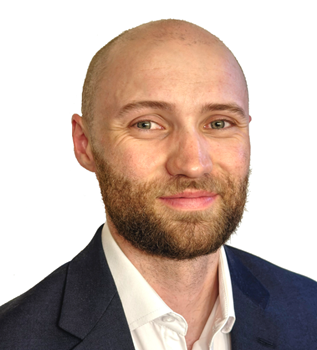
Daniel Stewart Thomson, MD
Medical School: Tufts University School of Medicine
Residency: University of Colorado Pediatric Residency
Email: Daniel.Thomson
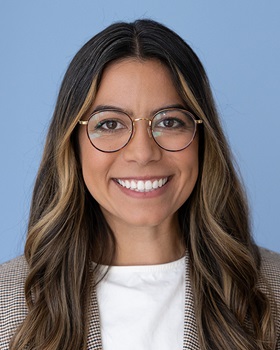
Camille Nalani Chun, MD
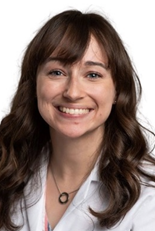
Haley Mae Myers, MD
3rd Year Fellows
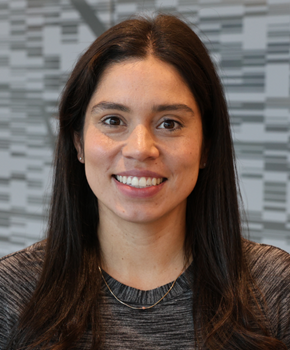
Courtney M Giannini, MD, PhD
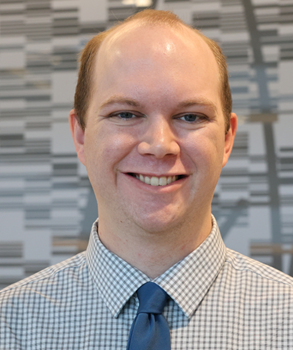
Austin G. McCuistion, MD